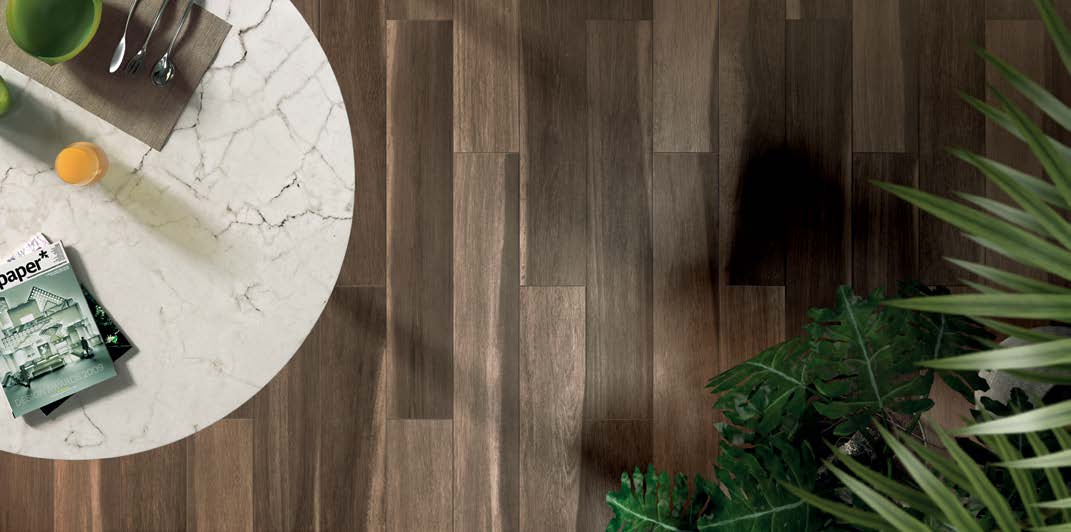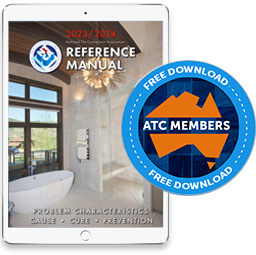Ceramic materials are time honoured, ancient products, which are used extensively in every internal and external aspect of our built environment.
Today, tiles can be purchased in an extensive variety of formats which vary in size from tiny mosaic tesserae to giant pieces of porcelain.
Tiles vary in thickness from 3 mm to 25 mm. Products are manufactured from mixes of clay, sand and a variety of natural substances which are fired at extreme temperatures which frequently exceed 1200 degrees Celsius. The blend of raw materials and the temperature they are fired at determine the nature of the tile, and its suitability for use in specific applications.
The firing process produces hard, rigid products which are fragile in certain circumstances. However, once tiles are correctly installed, they are capable of withstanding heavy loads, and substantial levels of foot traffic, without bending or deforming. At this stage they are highly resistant to abrasion and their resistance to impact is increased.
While the pressing stage initially sets the hardness properties, it is the final stage of the firing process that ultimately determines the hardness of the product. The high temperature production process produces a surface finish which is easy to clean and maintain. Ceramic tiles are inert, they can be fully immersed in water without any change occurring. Significantly, the flames of a fire will not alter their structure.
Consequently, tile can be adhered to any internal or external, vertical or horizontal, wet or dry surface that has been correctly prepared.

All the outlined advantages of versatility, durability and low maintenance which are associated with use of ceramic tile, are further enhanced by advances in digital ink-jet printing which permit manufacturers to accurately reproduce the appearance of practically any other surface finish or texture including timber, natural stone and concrete. The ceramic replications will outlast the material they faithfully imitate. A convincing ceramic imitation of timber in a 150 x 900 mm plank by Di Lorenzo, NSW
To summarise, tiles are:
Versatile
They can be laid in numerous residential and commercial applications.
Hardwearing/Exceptional Life Cycle
Life Cycle Analysis (LCA) studies have determined that correctly chosen and installed ceramic tiles materials can last as long as the building in which they are installed in.
Low Maintenance
The cost of periodic maintenance of floor finishes over a protracted extended period of time is expensive and constantly increases. Tile requires minimal maintenance.
Easy Cleaning
The vast majority of ceramic floor tile installations can be cleaned by sweeping away accumulated grit and light mopping or cleaning with a microfibre wipe.
Hygienic
The compact body of the product prevents impregnation by dirt, dust mites or other potential contaminants.
Fire and Heat Resistant
Tiles will not burn. The inert nature of the material determines that no toxins or volatile organic compounds (VOCs) will be released during a fire. Tiled surfaces delay the spread of fire, the surface cannot be burned or marked by a lit cigarette.



